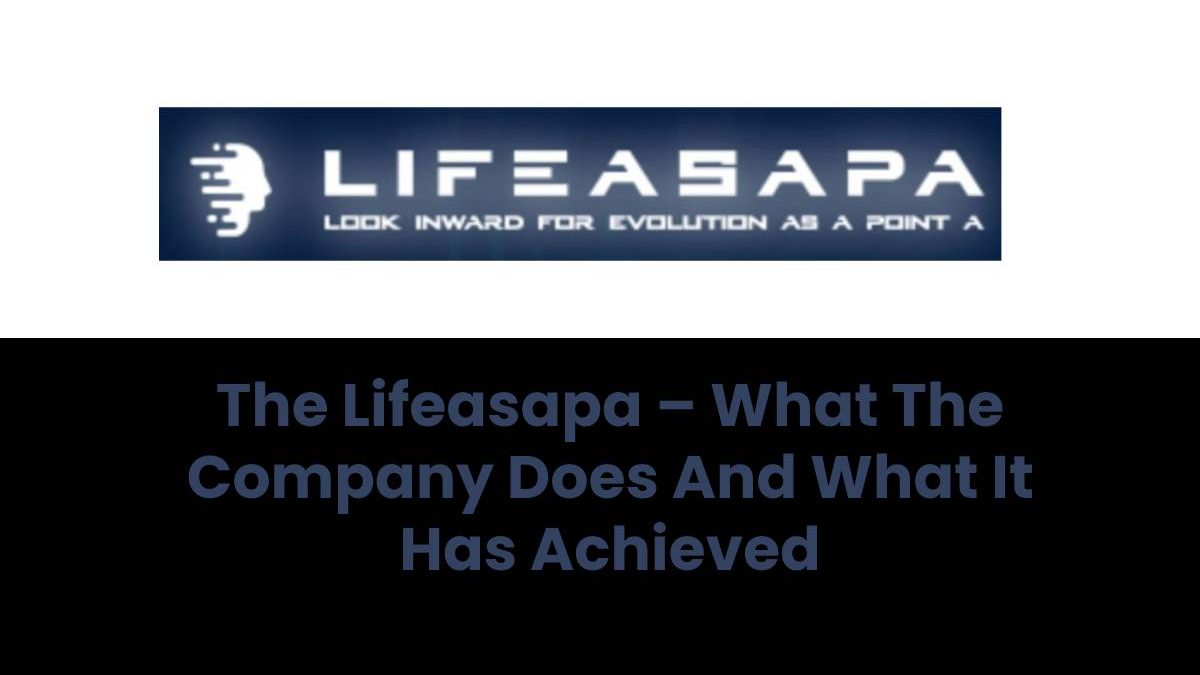Table of Contents
Introduction
The past few years have seen organizations from Apple to Microsoft lead investments into pathbreaking areas of science and technology. The main focus of these innovations has been to come up solutions that can help us create a better future for the next generation of humans.
Tech and digital advancements have led to newer areas of economic, social, cultural and political opportunities for different nations and businesses all over the world.
In this regard emerging new technologies like Artificial Intelligence and Machine learning are playing a constructive role. They are helping revolutionize core industries from the health sector to the financial sector.
In this article, we take a look at one of the leading organizations helping researchers and innovators create new tech models to aid humankind- Lifeasapa.
Lifeasapa: A Brief History
In the world of science,Lifeasapa is known to everyone, even to the youngest scientist. This organization was able not only to make an unbearable contribution to science with its projects but also to help many young scientists and associations to fund their projects.
Lifeasapa was founded on January 8, 2013, in Seychelles. The project was initially started with the idea of importance to save nature, improve the quality of people’s lives, as well as to solve other global-scale problems. Soon, a team of scientists also took on another complex task – to fund potentially successful projects.
At the very beginning of this idea implementation, a site was created where the regular users could support any projects they find interesting or promising by contributing any amount of money. Thus, it was possible to bring to light several ideas from scientists that were aimed at combating serious diseases, ageing, as well as environmental disasters.
SYPWAI – the project of the future
In December 2018, Lifeasapa announced a $90 million grant contest. Dozens of companies took part in this competition, each of which presented their own project. And the undisputed winner was TheNeurosphere with their SYPWAI project.
After winning the competition the company immediately began to work on their research, which significantly helped to develop the world of science. Thanks to such support from Lifeasapa, TheNeurosphere has become well-known to the entire world of scientists. The main direction of work in TheNeurosphere is neural networks and artificial intelligence.
Scientists are sure that this development will help improve the quality of life of every person on Earth, and will also be able to protect humanity from natural disasters, or warn about their occurrence in time.
SYPWAI gives an opportunity not only to work with artificial intelligence, but also to learn about it, which today, not without benefit from this project, is actively developing and gaining more and more popularity.
Benefits of Artificial Intelligence in the Healthcare Sector
The past few years have seen organizations experiment with AI in the healthcare sector. The most visual representation of the same is the use of AI to understand diseases through symptoms in poorly developed regions of the world.
Inaccessible regions can benefit deeply by understanding the nature of illnesses, suggesting the next steps and connecting patients with healthcare providers and medical emergency staff.
Like SYPWAI, more research into AI and healthcare can shed light on the early detection of various life-threatening diseases and illnesses. The AI algorithms are more than capable of catching things that can be missed by the human eye.
However, probably the single biggest advantage of AI is that it can drastically reduce the costs of healthcare. Yes, AI technologies and its adoption would result in people not requiring labs to test themselves.
The Bottom Line
To date, the usefulness of artificial intelligence has been proven more than once, which suggests that Lifeasapa was not mistaken in choosing a winner for a grant of a record amount. The higher management at Lifeasapa feels that more investments into these cutting-edge technologies can revolutionize human living and healthcare as we know it.

